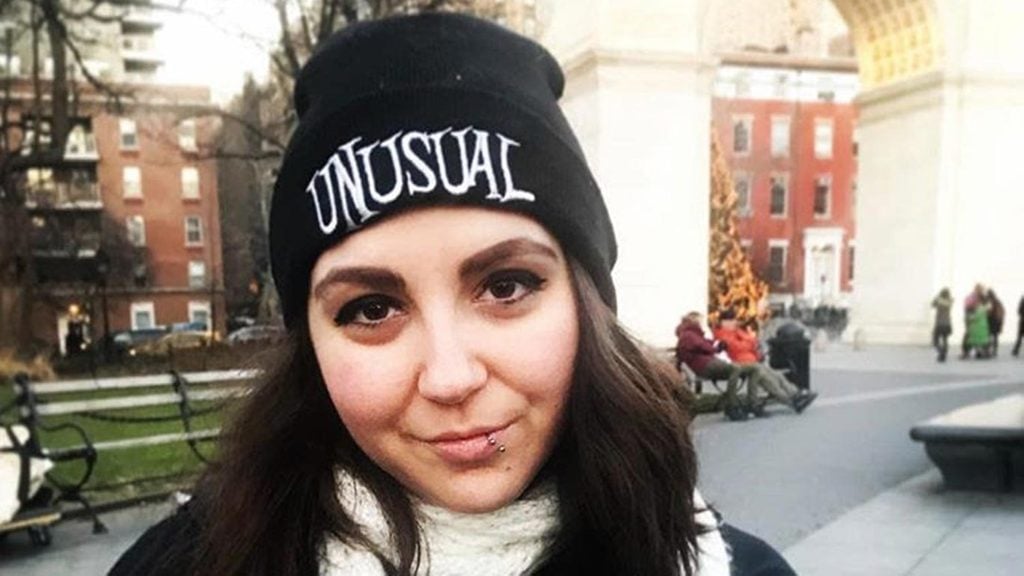I Called A Suicide Hotline Once—Here’s Why I Hung Up
Updated: Nov. 25, 2022

Here's what people with suicidal thoughts really need to hear, instead.
Yes, I am just a stranger to you, but in a way, I know you better than anyone else. And if you’re reading this, I’m here to tell you that you matter.
How do I know? Ever since I was a child, I have been in and out of psychiatrists’ offices. I’ve dealt with depression, anxiety, and bipolar disorder over the years—never was the struggle more intense than when I was in my mid-to-late teens. I struggled with the question of whether or not to kill myself since the age of 14. Statistics show I’m not alone. According to the U.S. Centers for Disease Control and Prevention, suicide is the second leading cause of death amongst Americans ages 10 to 34. It is also the tenth leading cause of death for Americans of all ages and incidents of suicide are on the rise.
Why I called the hotline
My freshman year of college was particularly difficult for me on a mental health level: I felt utterly lost in the middle of an extremely large university and I didn’t feel connected to anyone. My peers seemed as though they were solely concerned with partying and I didn’t feel as though anyone could be bothered to make time for me and my suicidal thoughts. I felt like I had no one to talk to despite being part of a university with around 30,000 students, so I called a suicide hotline.
What the suicide hotline operator got wrong
I didn’t think I could feel any worse than I did right then. “What’s the worst that could happen?” I thought as I made the call. After all, it was their job to talk to me and make me feel better, right? Well, my assumption wasn’t totally correct. It turned out I didn’t end up meeting the qualifications for a “priority” call.
The first thing that the suicide hotline assistant asked me was, “Do you have a date?” Many people with suicidal intentions make concrete plans as to when, where, and how they are going to kill themselves. I did not have those plans mapped out, but that doesn’t mean that my thoughts and feelings were any less valid or life-threatening. To the person who answered the phone, however, that’s exactly what it meant. In a very matter of fact way, she told me that they “usually talk to people who have already made plans.” Because my date wasn’t booked, she made me feel like an unwelcome caller.
The National Suicide Prevention Lifeline (NSPL) has a carefully structured Suicide Risk Assessment Standard that they use to assess how much of a suicide risk a particular caller is and how to proceed with the conversation. The standard is separated into “Suicidal Desire,” “Suicidal Capabilities,” and “Suicidal Intent.” At the time I made my call, I clearly met the requirements for everything in the “Suicidal Desire” category and all but one factor (violence towards others) in the “Suicidal Capability” category. But I was lacking in the “Suicidal Intent” category. I don’t remember which crisis center I called, but whichever one it was, the operator clearly decided that because I didn’t check enough boxes in the “Suicidal Intent” category, I wasn’t worth the time. So, I hung up the phone. Please pay attention to the 13 suicide warning signs that are easy to miss.
Getting help
Now, just because I happened to have a negative experience calling a suicide hotline doesn’t mean that you should never call if you’re in need. It has been years since I made that call, and mental health and suicide prevention have received a lot more careful attention since then. If you need to talk to someone (a suicide hotline, a friend, a parent, a therapist), please do. But even if you end up having a bad experience as I did, don’t give up.
In my case, though I did eventually find the right therapist who ended up changing my life for the better. This advice from therapists can help you find a therapist you trust.
What people with suicidal thoughts really need to hear
During my one experience with calling a suicide hotline, the sentiments that particular operator shared were the exact opposite of what I needed to hear. Just because a person hasn’t put pen to paper, doesn’t make them any less of a suicide risk. What people with any suicidal thoughts really need to hear is very simple: “You matter, and I’m here to remind you of that fact.” If you know someone with depression or thoughts of suicide, here are 12 ways you can help.
Editor’s note: The National Suicide Prevention Lifeline phone number is 800-273-8255.

